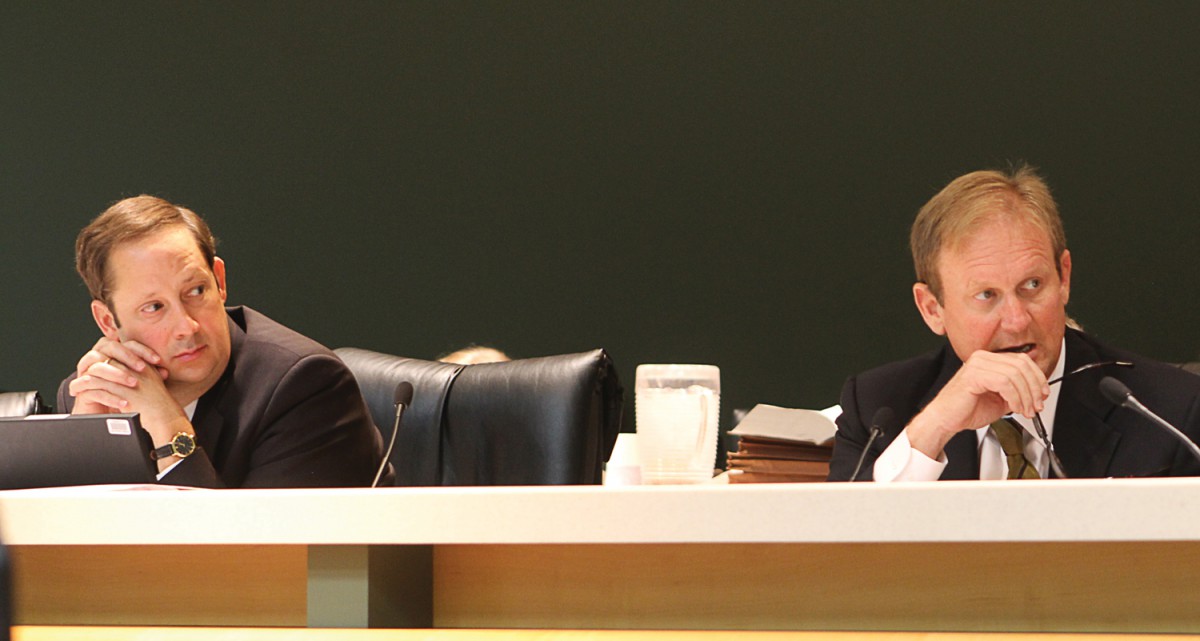As the Polytechnic decision last November echoes through the state capitol building, battle lines drawn during the debate are being reflected in legislation.
Bills making their way through the Senate would give the University of Florida and Florida State University the ability to raise tuition at an accelerated rate; the student representative on the Board of Governors would be appointed rather than elected; USF Tampa would take a deep cut to general revenue; and USF Polytechnic would immediately become the state’s 12th university under the tutelage of UF.
The center of the higher education changes appears to be JD Alexander, R-Lake Wales, who championed the independence of Polytechnic and has pushed back against USF’s insistence that it can keep the campus on the track developed by the Board of Governors.
Alexander, the Chair of both the Senate Budget Committee and the Joint Legislative Budget Committee, apparently does not make empty threats.
The student representative on the Board of Governors, New College Student President Michael Long, was one of three members that voted against the split. During the meeting he called out Alexander for threatening the university system’s budget if the board didn’t decide to make Polytechnic independent by fall.
Long said Alexander approached him after the meeting and warned him that his candor “marred” his future political aspirations.
Soon after, Sen. Bill Montford, D-Tallahassee, filed a bill to amend the state constitution that would make the student representative on the Board of Governors appointed, rather than elected by state university system student leadership.
Rep. Matt Gaetz, R-Fort Walton Beach—the son of Alexander ally Sen. Don Gaetz, R-Niceville—filed a similar bill in the House. Both bills moved through each chamber’s higher education committees.
If the bill—which is supported by administrators and student leaders in the University of Florida and Florida State University—is passed, Florida voters will decide whether or not to fundamentally alter one of the two elected positions on the Board of Governors.
The other elected position, a representative of the faculty association, voted for Polytechnic independence against the wishes of his constituents. No amendment to alter the selection method for that position has been proposed.
During the Poly debate, UF President Bernie Machen said he did not believe in the regional campus model for universities and offered to lend his institution’s expertise and accreditation to Polytechnic if it were to split from USF earlier than planned.
When the Senate higher education committee submitted a bill that would make Polytechnic immediately independent, against the wishes of the Board of Governors, it included language authorizing UF to serve as an advisor to the new university.
The Senate higher education committee also advanced a bill on Feb. 16 that would allow UF and FSU to increase tuition at a higher rate than the rest of the state universities, above the 15 percent per year already written into law.
Under current law, the universities will be able to increase tuition annually until the price reaches the national average, a process that was expected to take until 2019.
The proposal has the support of Board of Governors Chairman Dean Colson, one of the most vocal opponents of USF President Judy Genshaft’s decision to fire Polytechnic Regional Chancellor Marshall Goodman over the winter holiday.
The tuition increases will allow UF to compete on a national and international level, Machen said, claiming that UF is special within the state university system.
USF Tampa, the University of Central Florida, Florida Atlantic University and Florida International University would take the biggest cuts if the Senate’s plan to trim $400 million from general revenue funding for one year comes to fruition.
USF Tampa would receive $3,202 from the state per full time student compared to $4,741 for UF and $5,470 for FSU. USF St. Petersburg will receive $5,051, but this does not account for rents and administrative fees paid to the USF system.
Photo by April Parsons



